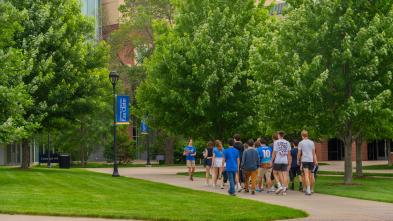Featured Image
For the media

Title
Federal grant supports UW-Eau Claire’s McNair program
Story Categories
Authored on
Federal grant supports UW-Eau Claire’s McNair program
Published on:
Intro text
A targeted graduate school preparation program aimed at first-generation, low-income and historically underrepresented undergraduates at the University of Wisconsin-Eau Claire has been awarded federal funding to operate for the next five years.
Sections
For the media
For the media
Image download


